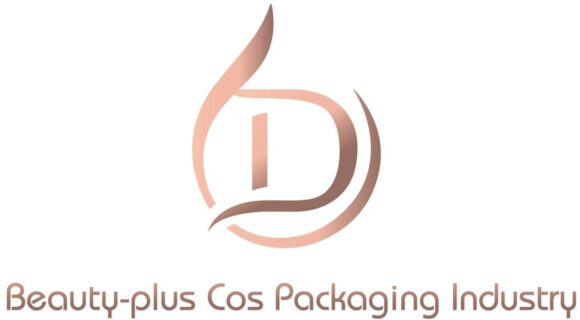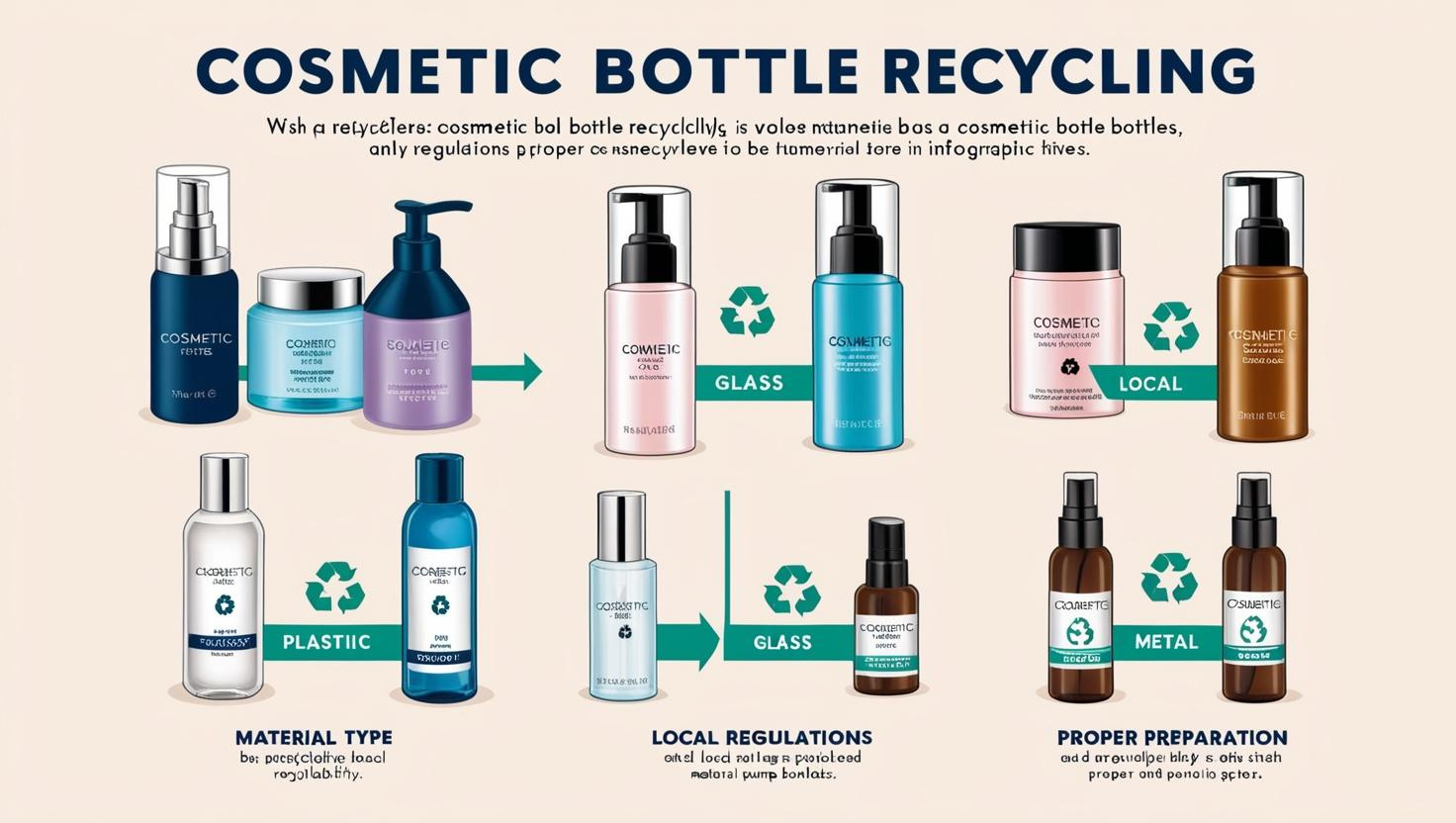
We all want cleaner beauty—but what about cleaner bottles?
Yes, many cosmetic bottles can be recycled, but it depends on the material, local recycling rules, and how you prepare them.
When I first started exporting plastic packaging, I thought recycling was simple. But clients kept asking if their toner bottle or pump jar was “really” recyclable. That’s when I learned: recycling isn’t just about the material—it’s about the system behind it.
How Can You Tell If a Plastic Bottle Is Recyclable?
Check the number—then check your city.
Look for the resin identification code1 (the number inside the triangle). Codes #1 (PET) and #2 (HDPE) are widely accepted in most recycling programs.
Quick guide to recycling codes
| Code | Plastic Type | Recyclable? | Common Use |
|---|---|---|---|
| 1 | PET | ✅ Yes | Cosmetic bottles, water bottles |
| 2 | HDPE | ✅ Yes | Lotion bottles, shampoo |
| 5 | PP | ♻ Depends | Caps, jars, dispensers |
| 7 | Other | ❌ Often No | Mixed materials, hard to sort |
If there’s no number, it’s harder to tell. Local guidelines are your best reference.
Are Plastic Bottles 100% Recyclable?
It’s not always a perfect cycle.
Most plastic bottles are technically recyclable2, but many aren’t fully recycled due to contamination, mixed materials, or local facility limits.
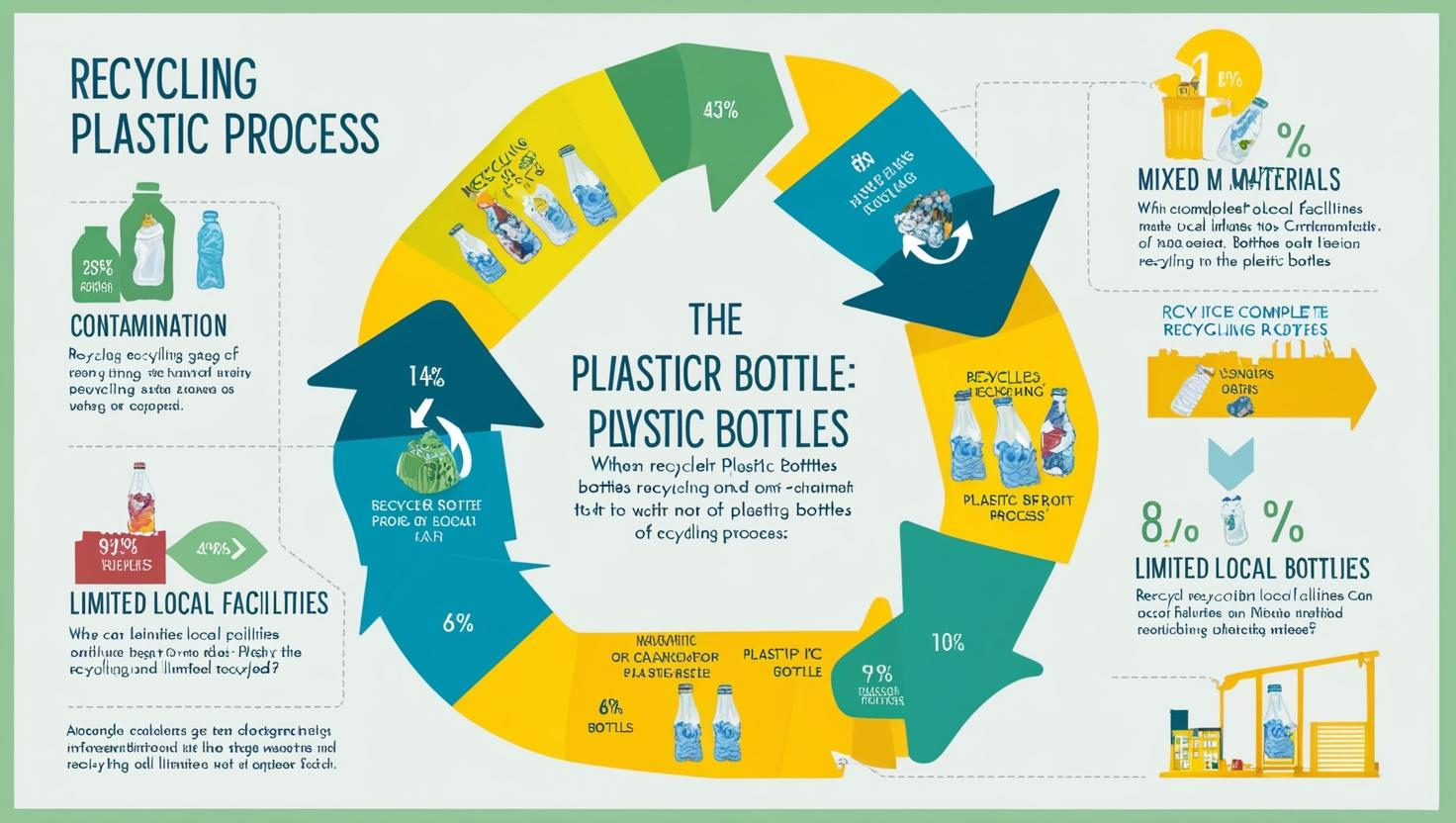
What makes a bottle “non-recyclable”?
- Pumps and droppers with mixed materials
- Labels made of non-removable plastic film
- Products with residue inside
- Dark-colored plastics (harder to detect by machines)
To improve the odds, go for single-material packaging and clean it before tossing.
Should I Empty Plastic Bottles Before Recycling?
Yes—always.
You should empty plastic bottles before recycling3 to prevent contamination of the recycling stream.
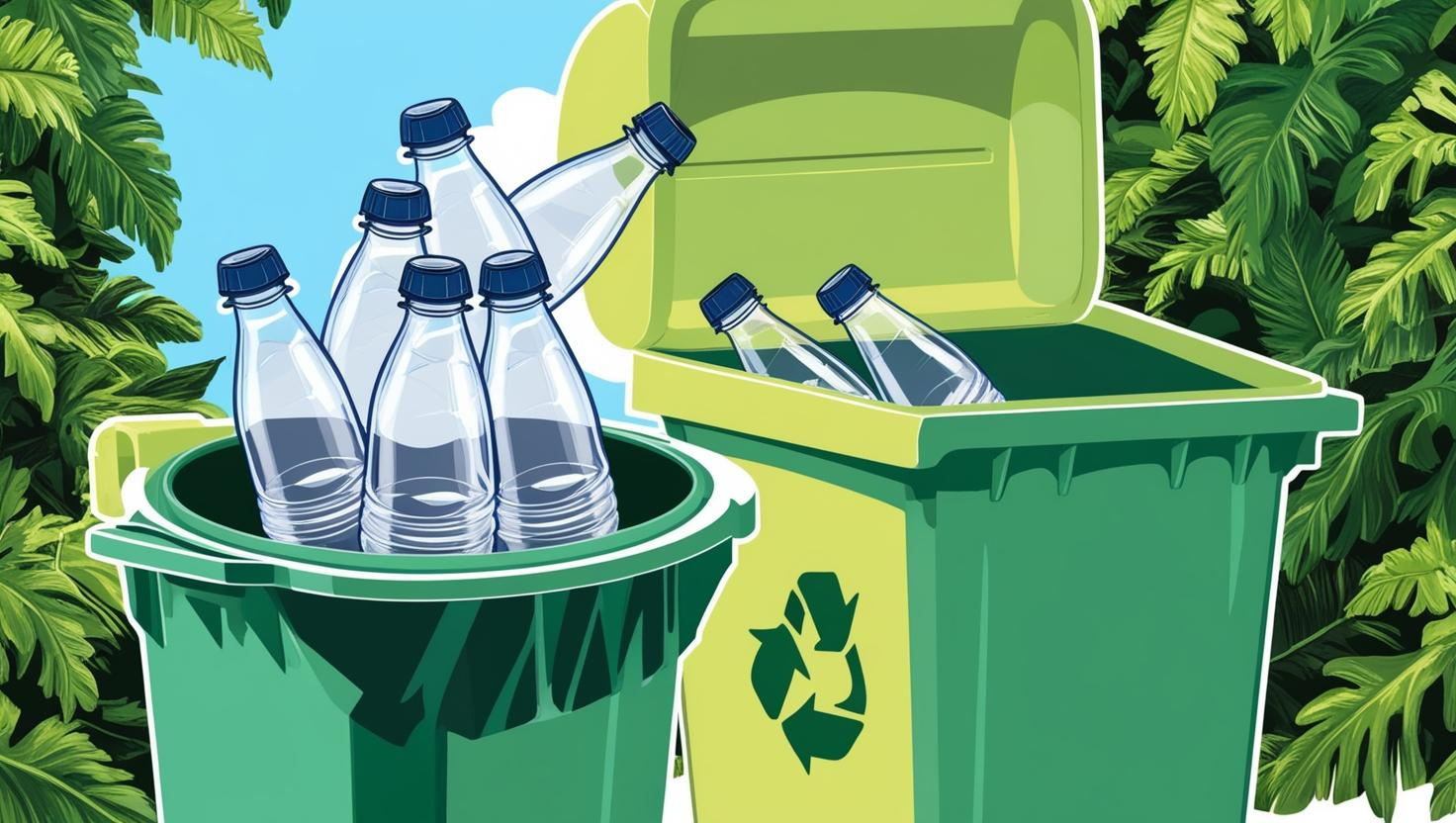
Why it matters
- Leftover product can spoil the load
- Liquids may leak during transport
- It reduces the need for manual sorting at the plant
A quick squeeze or shake-out goes a long way.
Is It OK to Crush Plastic Bottles for Recycling?
It depends on your local program.
Some recycling centers ask you to crush bottles4 to save space, while others prefer intact shapes for sorting machines.
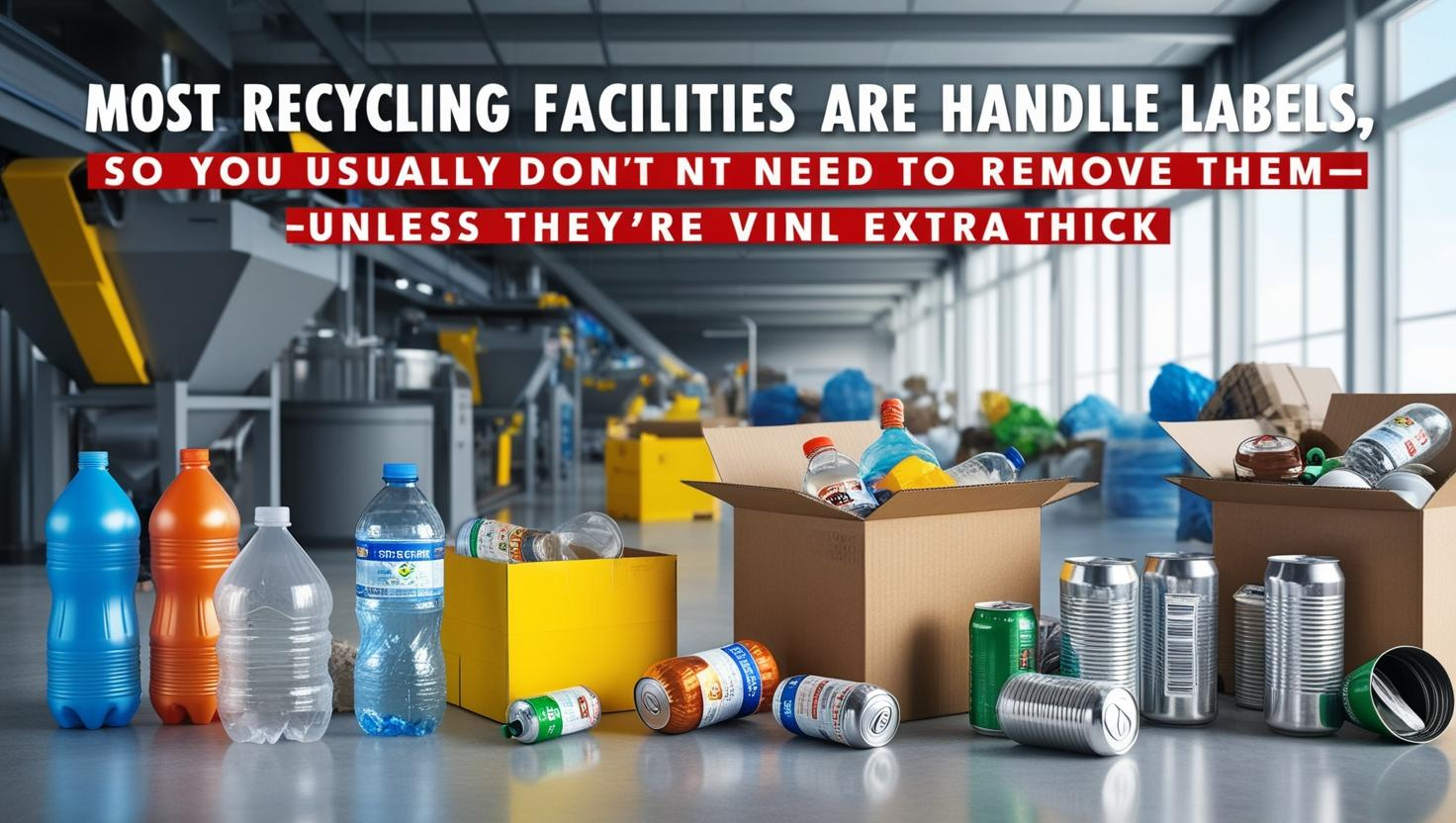
Best practices
- If your area allows, crush bottles with the cap off
- Do NOT crush if your recycler uses optical sorting
- Always check local recycling rules or guidelines
Crushing helps logistics, but don’t do it blindly.
Do Bottles Need to Be Rinsed Before Recycling?
A quick rinse is enough.
Yes, bottles should be rinsed lightly5 to remove product residue—especially for sticky or oily formulas.
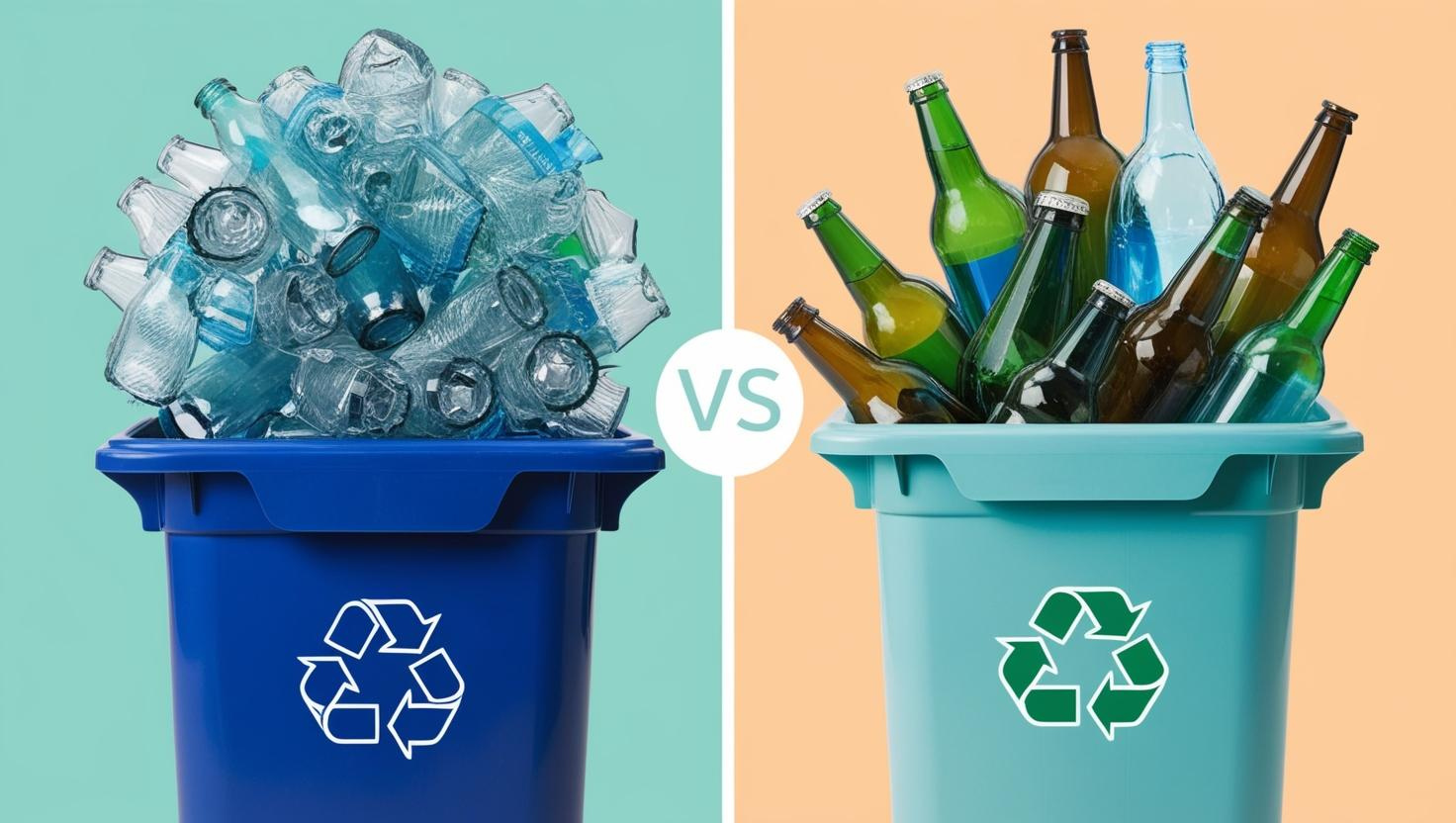
What to clean and what not
| Item Type | Rinse Required? |
|---|---|
| Lotion bottle | ✅ Yes |
| Toner bottle | ✅ Yes |
| Lip balm jar | ❌ Hard to clean |
| Dropper bottle | ✅ Partial |
Don’t scrub—just swish with water and pour.
Should You Remove Labels from Plastic Bottles Before Recycling?
Usually not required.
Most recycling facilities are equipped to handle labels, so you usually don’t need to remove them—unless they’re vinyl or extra thick.
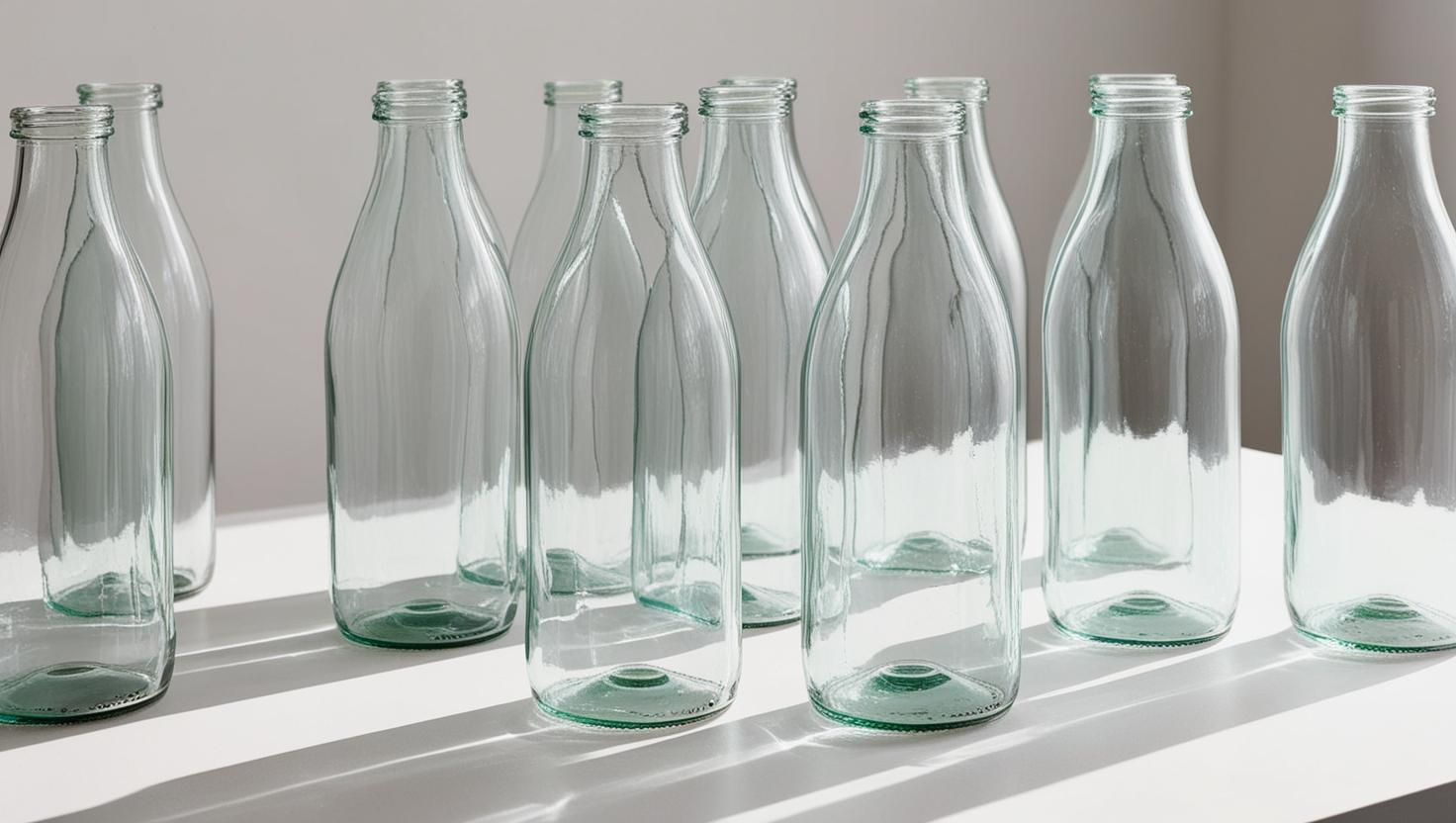
When to remove labels
- If it peels off easily, go ahead
- If it’s shrink-wrapped, cut it off
- Paper labels are usually fine to leave on
If in doubt, ask your local recycler or check the bottle’s packaging guide.
Conclusion
Cosmetic bottles can be recycled—but only if we prepare them right. Know your materials, clean them up, and follow local rules to give your packaging a second life.
-
Understanding resin identification codes helps consumers determine if a plastic bottle is recyclable, aiding in proper disposal and supporting environmental sustainability. ↩
-
This clarifies why some cosmetic bottles are not fully recyclable despite being plastic. ↩
-
Explains how product residue can contaminate recycling batches and reduce effectiveness. ↩
-
Provides guidance on whether crushing helps or harms recycling depending on local practices. ↩
-
Helps consumers reduce contamination and improve recycling rates by cleaning containers. ↩
